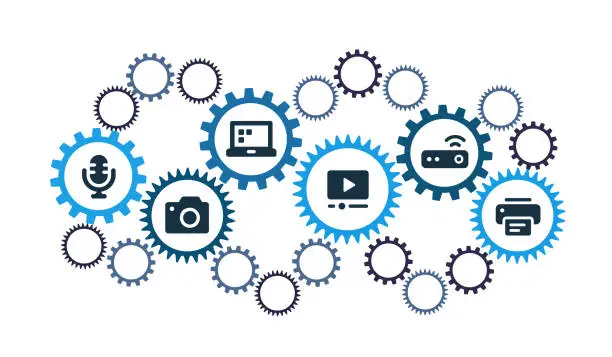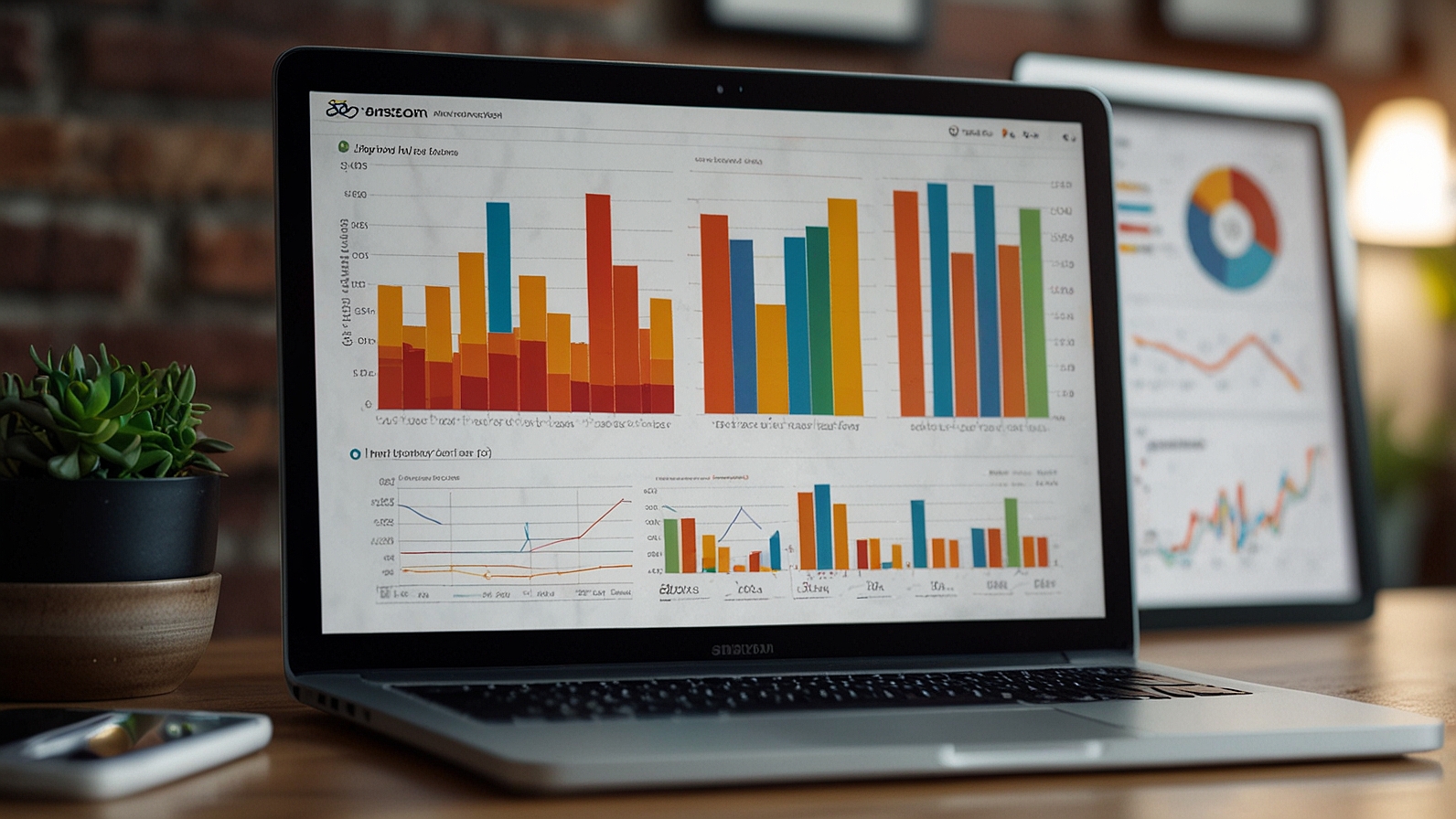Business
Signs Your Business Needs an Audio-Visual Upgrade

Key Takeaways
- Outdated audio-visual systems can negatively impact productivity and engagement in business settings.
- Upgrading to modern solutions can enhance communication, collaboration, and customer experience.
- Reliable audio-visual solutions offer long-term benefits, including increased efficiency and future scalability.
Introduction
In today’s dynamic business landscape, leveraging cutting-edge technology is paramount to operational success and competitive advantage. Audiovisual tools, often underestimated, play a pivotal role in fostering effective communication and engagement. As businesses evolve, maintaining up-to-date audiovisual setups becomes crucial. This article examines the tell-tale signs indicating a need for an audiovisual upgrade and the numerous benefits of adopting advanced, reliable systems poised to transform your business operations and interactions.
Outdated Equipment and Technology
Suppose you’ve encountered issues with unreliable video conferencing systems, poor screen resolution, or inadequate sound quality during vital meetings. In that case, consider reconsidering the efficacy of your existing setup. Outdated audio-visual technology can significantly impede the quality of communications, which is fundamental to nurturing professional relationships and ensuring efficient operations. An investment in an upgrade can leverage solutions from a reliable audio-visual company in the San Francisco Bay Area, offering state-of-the-art systems that elevate clarity and engagement.
Technological obsolescence is a progressive concern, with yesterday’s groundbreaking innovations quickly becoming today’s standards. Falling behind with obsolete equipment limits functionality and may tarnish your company’s image. Upgrading can introduce versatility with newer technologies, such as wireless integration, sophisticated system interfaces, and ultra-high-definition displays, which are essential in keeping pace with contemporary business demands and expectations.
Frequent Maintenance and Repairs
Frequent technical glitches that necessitate ongoing IT support indicate that an overhaul is necessary. Persistent malfunctions are a distracting inconvenience and financial and operational burdens. Regular disruptions lead to employee frustration and productivity loss, which can cascade into broader business inefficiencies. A transition to robust audio-visual systems drastically diminishes these interruptions, paving the way for smoother, uninterrupted operations.
Advanced audio-visual equipment is built with durability in mind, reducing the need for frequent maintenance and associated costs. These systems boast longevity and come with comprehensive support and warranty options, ensuring rapid resolution of any issues with minimal impact on daily operations. This durability guarantees that your business runs seamlessly, allowing your team to focus on what truly matters—achieving organizational goals.
Inefficient Communication and Collaboration
Assertive communication is the bedrock of a thriving business. However, if meetings often begin with ‘Can you hear me now?’ rather than productive discussion, it’s time to reassess your setups. Modern audio-visual solutions revolutionize communication, enhancing collaboration across teams no matter where they are located. These upgrades streamline communication and improve the quality and ease of interactions.
Advanced systems provide capabilities such as high-definition video conferencing, sophisticated acoustic setups, and seamless screen-sharing options. With many workforces shifting towards hybrid or fully remote models, such systems are indispensable. They empower teams to gather and share ideas efficiently, boosting engagement and productivity. These tools ensure that everyone is connected and able to contribute, making distant collaboration feel as natural and effective as in-person teamwork.
Poor Customer and Client Experiences
Your engagements with clients and customers greatly influence how your business is perceived. A reluctance or inability to utilize modern audio-visual technology during presentations or meetings may signal a lack of professionalism, potentially harming your business’s reputation. If your equipment hinders client communication, causing delays or misunderstandings, it’s time for an upgraded system to enhance the overall client experience.
An updated audio-visual system facilitates more dynamic and engaging client interactions, demonstrating a commitment to superior service and professionalism. Enhanced visual and audio quality during presentations fosters confidence and trust, which are key components in building and maintaining strong customer relationships. Clients are likelier to walk away impressed and with a favorable perception of your business when their meeting experience is seamless and technologically progressive.
Staying Competitive and Relevant
In an ever-evolving digital landscape, staying relevant requires a proactive approach to adopting the latest technologies. Businesses prioritizing and investing in superior audiovisual setups distinguish themselves as industry leaders, appealing to clients and prospective employees as innovative, future-focused entities. Leveraging technology that augments operations and enhances the work environment is indispensable to keeping a competitive edge.
Beyond the immediate advantages, investing in modern technology cultivates a culture geared toward ongoing improvement and forward-thinking. Employees are empowered by tools that allow them to perform optimally, enhancing job satisfaction and reducing turnover. When organizations are committed to the latest technology, they attract talent, retain expertise, and position themselves as leaders in their field, ready to meet new challenges head-on.
The Benefits of Choosing Reliable Solutions
One of the most compelling reasons to opt for a reliable audio-visual solution is its enduring benefits. Modern setups ensure enhanced efficiency and adaptability and are designed for scalability, allowing businesses to grow and evolve without costly overhauls. They reduce needless downtime with fail-proof components and robust support, promoting consistency and reliability in operations.
Moreover, investing in state-of-the-art solutions equates to partnering with providers who ensure your systems evolve alongside technological advancements. This foresight guards against obsolescence and ensures your infrastructure can adapt to new demands and opportunities. With an emphasis on sustainability, these solutions often feature energy-efficient technologies, aligning with corporate social responsibility goals and reducing environmental impact. A reliable audio-visual upgrade gives your business a framework for future success, marked by increased productivity, sustainability, and resilience.
Conclusion
Recognizing when your business requires an audiovisual upgrade is essential for maintaining operational efficiency and fostering strong stakeholder relationships. Upgrading modern and reliable systems ensures enhanced communication, collaboration, and customer engagement. The advantages extend well beyond immediate improvements, facilitating a business environment that’s competitive, adaptable, and equipped for future challenges. Embrace this change to empower your workforce and cultivate a culture of innovation and excellence, ultimately leading your business to thrive and succeed.
Business
Hitlmila: Crafting Your Digital Identity

Have you ever scrolled through a perfectly curated social media feed and felt a sense of… emptiness? Like everyone else is playing a character in a show you didn’t audition for? You post content, hoping it will “perform,” but it often feels like you’re shouting into a void, disconnected from the very people you want to reach.
What if there was a way to build a digital presence that feels truly, authentically you—one that attracts the right opportunities and builds genuine community instead of just accumulating likes? This is the core promise of embracing a Hitlmila mindset.
What Exactly is Hitlmila? Beyond the Buzzword
Let’s clear something up right away: Hitlmila isn’t a new app or a complicated software suite you have to buy. It’s not another corporate buzzword to add to your LinkedIn bio.
Hitlmila is a philosophy. It’s a framework for the intentional, authentic curation of your digital self. It’s about building a cohesive narrative across all your platforms that seamlessly blends your professionalism, your personality, and your purpose.
Think of your online presence as a mosaic. Each tweet, blog post, comment, portfolio piece, and even your LinkedIn recommendation is a single, colored tile. For years, you might have been placing these tiles randomly, hoping they’d form a picture. Hitlmila is the artistic vision and the mortar that intentionally arranges those tiles into a stunning, recognizable picture that is uniquely and undeniably yours.
It emerged as a conscious response to the fatigue we all feel from generic, algorithm-chasing content. It’s the shift from “What should I post to go viral?” to “What can I share that truly represents my value and connects with my people?”
The Core Pillars of a Powerful Hitlmila
Any strong philosophy needs a foundation. Building your Hitlmila rests on these five essential pillars:
- Authentic Voice: This is the heartbeat of your digital identity. It’s finding and consistently using your unique tone—be it witty, thoughtful, authoritative, or compassionate. It’s writing and creating as you speak, letting your human quirks shine through.
- Value-Centric Content: Shift your focus from “creating content” to “delivering value.” Every piece you put out should answer a question, solve a problem, inspire an idea, or bring a moment of joy to your audience. It’s about their gain, not your grandstanding.
- Strategic Cohesion: Your LinkedIn, Instagram, personal blog, and TikTok shouldn’t feel like separate characters. They are different rooms in your same “digital home.” A Hitlmila approach ensures they all tell one unified story, with a consistent visual and narrative thread.
- Community as Catalyst: This moves you from a broadcaster to a community leader. It’s prioritizing meaningful engagement and conversation. Reply to comments with thought. Comment on others’ work generously. Build with your audience, not just for them.
- Adaptive Experimentation: A stagnant presence is a dying one. Hitlmila encourages creative experimentation. Be unafraid to try new formats—a podcast, a newsletter, a live Q&A—and see what resonates. It’s about learning and evolving in public.
Why Your Digital Presence Needs a Hitlmila Approach
You might be thinking, “This sounds like more work.” It is—but it’s fulfilling work with a tremendous payoff. If you’re tired of shouting into the void or struggling to monetize your passion, this is your way out.
- Stand Out in the Noise: Instead of being another voice in the crowd, you become a recognizable thought leader. A strong, authentic narrative is magnetic and makes you memorable.
- Build Trust Faster: People connect with people, not perfectly polished facades. Authenticity attracts loyalty and forges stronger, more genuine professional and personal relationships.
- Attract Ideal Opportunities: When your narrative is clear and your value is obvious, you stop chasing opportunities. The right clients, dream jobs, and perfect collaborations will begin to find you.
- Future-Proof Your Brand: Algorithms change. Platforms rise and fall. A philosophy rooted in authenticity and value, however, is forever adaptable. Your Hitlmila is your anchor in the shifting digital seas.
How to Build Your Own Hitlmila: A Step-by-Step Guide
Ready to build? Let’s break this philosophy down into actionable steps.
Step 1: The Digital Audit.
Set aside an hour. Look at your top three social profiles and your website (if you have one) with a critical eye. Ask yourself: Is this consistent? Does it sound like me? What story does this tell a stranger? Be brutally honest. This is your baseline.
Step 2: Define Your Core Narrative.
Grab a notebook. Answer these questions: What do I know? Who do I want to help? How do I want to make them feel? What are my three core values? Your answers are the blueprint for your Hitlmila.
Step 3: Choose Your Channels Wisely.
You don’t need to be everywhere. You need to be right somewhere. Where does your ideal community already gather? If you’re a visual artist, Instagram and Pinterest are your home. If you’re a B2B consultant, it’s LinkedIn. Focus your energy where it counts.
Step 4: Develop a Content Ecosystem.
This is where efficiency meets value. A single core idea can live across multiple platforms. A long-form blog post (your “home base”) can become:
- A carousel post on Instagram.
- A key quote graphic on Twitter.
- A discussion thread on LinkedIn.
- A 60-second summary on TikTok.
This ensures your message reaches your audience wherever they are, without you having to create entirely new ideas from scratch.
Step 5: Engage, Don’t Just Broadcast.
Schedule 20 minutes each day not for posting, but for engaging. Leave meaningful comments on five posts from people you admire or who are in your community. Answer every comment you receive with a question to keep the conversation going. Remember, community is the catalyst.
| Aspect | Traditional Approach | Hitlmila Approach |
|---|---|---|
| Goal | Go viral; Gain followers | Build trust; Nurture a community |
| Content Strategy | Chase trends and algorithms | Deliver consistent, value-driven content |
| Primary Metric | Likes, Follower Count | Meaningful Engagement, Quality DMs |
| Mindset | Broadcasting | Conversing and Collaborating |
Real-World Hitlmila in Action
You see this philosophy working every day, even if it’s not labeled as such.
- The Freelance Designer: She doesn’t just post her final logos on Instagram. She shares her creative process—her messy sketches, the three concepts the client rejected, and a quick video on how to choose the right font. Her quirky, educational presence showcases her expertise and humanity, making big clients trust her with their most important projects.
- The Tech CEO: Instead of only posting polished press releases on LinkedIn, he shares honest stories about his fears, a product failure and what the team learned, and his favorite books on leadership. This radical authenticity has built him a massive, fiercely loyal following that believes in him, not just his company.
This is the essence of the idea. As marketing guru Ann Handley says, “Content is about empathy, not ego,” which is a cornerstone of the Hitlmila mindset.
Conclusion and Next Steps: Your Hitlmila Journey Starts Now
Your digital identity is one of your most valuable assets. Building it with intention—with a Hitlmila framework—is the difference between having a random collection of online artifacts and owning a purposeful, impactful digital home.
It’s about choosing consistency over chaos and authenticity over performance.
Your journey starts today. Here are your first three steps:
- Pick one platform to audit this week.
- Write down three words that describe your desired digital voice (e.g., “approachable, expert, witty”).
- Comment below: What’s one area of your digital presence you want to improve first?
Your unique digital identity is waiting to be built. Go and create something remarkable.
You May Also Read: Amazon Reporting byHyperzon: The Ultimate Guide
FAQs
Is Hitlmila just for entrepreneurs and businesses?
Not at all! While incredibly powerful for branding, anyone with an online presence—from job seekers to hobbyists—can use the Hitlmila philosophy to create a more authentic and fulfilling digital life.
How is Hitlmila different from a personal brand?
Think of personal branding as the what—the logo, the headline, the offer. Hitlmila is the how—the living, breathing strategy and ethos behind it. It’s the engine that makes the brand hum.
Do I need a huge budget to implement this?
Absolutely not. Hitlmila is rooted in mindset and strategy, not budget. Your authenticity, consistency, and willingness to engage are your most valuable assets.
How long does it take to see results from this approach?
While genuine community and trust take time to build, you’ll feel a difference immediately. The clarity and purpose that come from this intentional approach are results in themselves. Tangible opportunities often follow within a few months.
Can a large corporation have a Hitlmila?
Yes, but it requires a shift. It means the brand acts like a human—showing personality, admitting mistakes, and valuing conversation over corporate monologue. It’s challenging but incredibly rewarding.
Does this mean I have to share my private life online?
No. Authenticity isn’t about oversharing; it’s about being genuine within your chosen domain. A chef can be authentic by sharing their passion for food and their creative process without revealing their personal life.
Where can I learn more about the Hitlmila concept?
The best way is to start practicing it! Follow thinkers who prioritize authenticity online and analyze brands that do it well. The concept is emerging, so you’re already at the forefront by engaging with this idea.
Business
Amazon Reporting byHyperzon: The Ultimate Guide

You’ve poured your heart into your Amazon business. But instead of reaping the rewards, you’re drowning in a sea of numbers. You’re guessing which products are actually profitable, watching your ad budget vanish without a clear return, and making crucial inventory decisions based on a gut feeling. Sound familiar? That daily chaos isn’t just frustrating—it’s costing you money. What if you had a co-pilot that translated all that data chaos into a clear, actionable plan? This is where Amazon reporting byHyperzon enters the picture, transforming overwhelming spreadsheets into your strategic advantage. Let’s explore.
What is Amazon Reporting byHyperzon?
Let’s be clear: byHyperzon isn’t just another dashboard to glance at. It’s an agency-delivered analytics product designed to be your command center. Think of it this way: if your Amazon Seller Central is the raw, confusing engine data, byHyperzon is the sleek, user-friendly dashboard and GPS. It tells you exactly how to drive your business for maximum performance and profit.
Its core function is powerful yet simple. byHyperzon aggregates all your critical data—from advertising and sales to inventory and keyword rankings—into a single, intuitive interface. No more juggling a dozen spreadsheets. Everything you need to know is in one place, translated from raw data into plain English.
5 Game-Changing Benefits of Using byHyperzon
- Crystal-Clear Profitability Tracking
Go beyond Amazon’s default reports. byHyperzon shows you the true profit per SKU, calculated after all Amazon fees, advertising spend, and your cost of goods. Finally, see what’s really making you money. - Advertising ROI, Simplified
No more guessing games. Instantly identify which keywords, campaigns, and ad groups are actually profitable and which are silently draining your budget. This is PPC optimization made simple. - Inventory Forecasting That Actually Works
Predict demand accurately to avoid costly stockouts (which kill your hard-earned rankings) and prevent overstocking (which unnecessarily ties up your cash). (Imagine a clean, color-coded chart here showing optimal inventory levels.) - Competitor Intelligence at a Glance
Keep a pulse on your competitors’ strategy without spending hours on manual sleuthing. Understand their moves so you can stay one step ahead. - Time Saved, Stress Reduced
Automate the tedious reporting grind. What used to take hours of manual work now takes minutes, freeing you to focus on what you do best: growing your business.
How to Implement byHyperzon in Your Amazon Business
Worried it will be a tech nightmare? Don’t be. The process is designed for simplicity.
- The Easy Setup: Connect your Amazon account in minutes via Amazon’s secure, read-only API. Your data is safe, and your account is secure.
- Dashboard Customization: Choose the metrics and KPIs that matter most to your specific business goals. You customize the view; we provide the data.
- Make Your First Data-Driven Decision: Almost immediately, you’ll spot an opportunity. Maybe it’s pausing a low-performing ad group or reordering a best-selling SKU before it runs out. That’s the power of clarity.
A Real-World Example: byHyperzon in Action
Meet EcoBrew, a fictional but realistic brand selling reusable coffee products. They were spending over $2,000 a month on Amazon Ads but had no idea which products or keywords were generating a return. To make matters worse, they were constantly running out of stock on their top-selling product, leading to lost sales and sinking rankings.
They implemented amazon reporting byhyperzon. Within the first 30 days, the picture became crystal clear. They identified and cut 35% of their wasted ad spend. By understanding their true profitability, they adjusted prices and increased their overall profit margin by 22%. Most importantly, they used the platform’s inventory insights to never stock out of their top product again. Chaos turned into controlled, profitable growth.
Your Path to Smarter Selling Starts Now
You don’t need a fortune-teller to grow your Amazon business; you need a translator for your data. byHyperzon is that translator, turning complexity into clear, actionable steps.
Your First 3 Steps:
- Book a Demo: See the platform in action with your own eyes.
- Identify Your Pain Points: What are the top 3 issues frustrating you right now? (Profitability? Ads? Inventory?)
- Connect & Explore: Link your account and explore one dashboard this week.
The best decisions are informed decisions. It’s time to stop guessing and start growing.
What’s the one metric that would change your business if you could see it clearly tomorrow?
You May Also Read: GoMyFinance.com Invest: Your First Step Into the World of Investing
FAQs
How is byHyperzon different from Amazon’s built-in reports?
Amazon provides raw, disconnected data. byHyperzon synthesizes it, focusing squarely on profitability and actionable insights. It connects the dots between advertising, inventory, and sales in a way Amazon’s native tools simply don’t.
I’m a relatively small seller. Is a tool like this worth the investment?
Absolutely. In fact, smaller sellers often benefit the most. Efficient use of a limited budget and inventory is critical. Wasting even a few hundred dollars on ineffective ads or a stockout can be devastating. byHyperzon helps protect and maximize your investment from day one.
Is my Amazon account data secure with byHyperzon?
Yes. byHyperzon uses Amazon’s secure MWS/SP-API for read-only access. This means it can pull your data for reporting but cannot make any changes to your listings, orders, or account settings. Your operational security is maintained.
What is the most important metric I should track first?
Start with your true Profit Margin after all costs, especially compared to your Advertising Cost of Sale (ACoS). Many products can have a “good” ACoS but are still losing money once all fees and costs are factored in. byHyperzon calculates this automatically.
Does it help with managing inventory across multiple warehouses (FBA) and my own (FBM)?
Yes! A key strength of byHyperzon is its unified view. It provides a holistic picture of your inventory health across all fulfillment channels, helping you make smarter restocking and storage decisions.
How long does it take to see a return on investment (ROI) from using the platform?
Many users identify cost-saving or profit-boosting opportunities within the first billing cycle (often a month). The ROI comes from the immediate actions you take based on its insights—like cutting unprofitable ads or preventing a stockout on a top seller.
Can I try it before I commit?
Yes. The agency behind byHyperzon offers demos to showcase the platform’s value, allowing you to see how it works with your own data before making a commitment.
Business
GoMyFinance.com Invest: Your First Step Into the World of Investing

Did you know that nearly 60% of Americans feel overwhelmed when even thinking about investing? If terms like ETFs, asset allocation, and expense ratios make your eyes glaze over, you’re far from alone. The financial world has built towering walls of complexity, seemingly designed to keep newcomers out. But what if there was a platform that handed you a ladder instead? This is where the mission of gomyfinance.com invest comes into play. It’s an accessibility-first platform designed not for Wall Street pros, but for the rest of us, packaging essential education, automated advice, and low barriers to entry into one simple, empowering experience.
What Exactly is the GoMyFinance.com Invest Platform?
Think of it like a GPS for your money. You know where you want to go—financial security, a down payment for a house, a comfortable retirement—but you have no idea how to navigate the maze of roads, highways, and dead ends to get there. GoMyFinance.com invest acts as that navigator. It’s a digital investing platform built from the ground up for people who are new to the game.
Its core philosophy is democratization. It strips away the intimidating jargon and high-cost barriers that have traditionally made investing feel like an exclusive club. Instead of expecting you to be an expert from day one, it meets you where you are, providing the tools and guidance to learn and grow your wealth simultaneously.
Breaking Down the Barriers: How It Works for You
Starting your investment journey can be paralyzing. Questions like “How much do I need?” and “What should I even buy?” stop many people before they even begin. This platform is engineered to dissolve those fears.
- The Educational Engine: Before you ever invest a dollar, you have access to a library of resources. We’re not talking dense textbooks. This is bite-sized, practical content—short videos, interactive guides, and plain-English articles that explain why certain investments work, not just how to buy them.
- Automated, Smart Advice: Once you’re ready, you don’t need to pick stocks blindly. The platform uses sophisticated algorithms to ask you simple questions about your goals (e.g., “I want to buy a home in 10 years”), your timeline, and your comfort with risk. It then automatically builds and manages a diversified portfolio for you. It’s like having a financial advisor in your pocket, minus the exorbitant fees.
- The Low Barrier to Entry: Perhaps the most significant hurdle is capital. Traditional brokerages often require thousands of dollars to start. A core tenet of the gomyfinance.com invest approach is that everyone should be able to participate. You can often start with a very small amount of money, making it possible to begin building your future today, not someday.
Why an Accessibility-First Approach is a Game-Changer
For decades, the investment industry profited from confusion. The more complex it seemed, the more people felt they needed to pay experts for help. An accessibility-first model flips this script entirely. It prioritizes user understanding and empowerment above all else.
This approach benefits everyone. It builds trust through transparency, fosters long-term loyalty, and, most importantly, it actually helps people improve their financial health. By making the process simple and educational, it turns anxious savers into confident investors. This isn’t just about providing a tool; it’s about providing a foundation for a better financial life.
GoMyFinance.com Invest vs. The Traditional Alternatives
How does this newcomer-focused platform stack up against established players? Let’s break it down in a simple comparison.
A Quick Comparison of Investing Platforms
| Feature | GoMyFinance.com Invest | Traditional Online Brokerages | Robo-Advisors |
|---|---|---|---|
| Primary Focus | Education & Accessibility | Trading & Self-Direction | Automated Investing |
| Ideal User | The Absolute Beginner | The Experienced Trader | The Hands-Off Saver |
| Minimum to Start | Very Low (e.g., $10) | Often $500 – $1000 | Varies ($100 – $500) |
| Educational Resources | Integrated, Core to the Experience | Extensive, but separate | Limited, supplemental |
| Guidance Level | High (Guided onboarding & management) | Low (You are entirely on your own) | Medium (Set-it-and-forget-it) |
| User Experience | Simplified, conversational, hand-holding | Complex, data-rich, professional | Clean, minimalist, efficient |
As you can see, while other options exist, they each cater to a different audience. The value of gomyfinance.com invest is its singular focus on onboarding and educating those taking their very first steps.
Taking Your First Step: A Practical Guide
Ready to dive in? The process is designed to be frictionless. Here’s what you can typically expect:
- Create Your Account: This involves the standard secure sign-up process, linking a bank account, and answering a few questions about yourself.
- Define Your Goals: The platform will guide you through defining what you’re investing for. This is a crucial step, as your goal dictates your strategy.
- Discover Your Risk Profile: Through a simple questionnaire, you’ll determine your risk tolerance. Are you comfortable with market swings for higher potential returns, or do you prefer a smoother, more conservative ride?
- Get Your Plan: The algorithm will present you with a proposed portfolio tailored to your unique answers. You’ll see exactly what you’re investing in and why.
- Fund and Automate: Set up an initial deposit and schedule automatic contributions. Even small, regular amounts—like the price of a few coffees each week—can grow significantly over time thanks to compound interest.
Your Financial Journey Starts with a Single Click
The biggest myth in investing is that you need to be an expert or have a lot of money to start. The truth is, the most important factor is time. The earlier you begin, the more your money can work for you. Platforms like gomyfinance.com invest exist to tear down the old gates and welcome a new generation of investors.
Your path to financial confidence doesn’t require a finance degree. It requires a clear, simple, and supportive platform to guide you. By combining education with action and lowering the barriers that have held people back, this approach doesn’t just help you invest; it helps you build a smarter financial future.
What was the biggest hurdle you faced when you first thought about investing? Share your story in the comments below!
You May Also Read: FintechZoom.com: Your Guide to the Financial Revolution
FAQs
Is my money safe on the GoMyFinance.com invest platform?
Absolutely. Reputable fintech platforms use top-tier security measures, including bank-level encryption (like sending a letter in a sealed, unbreakable envelope) and partner with established brokerages that are members of the Securities Investor Protection Corporation (SIPC) to protect your assets.
How much does it cost to use?
Pricing models vary, but accessibility-focused platforms typically have low or no account fees, with management fees significantly lower than a traditional human advisor (often around 0.25% annually). Always check the website for the most current and detailed fee schedule.
I only have $50 to start. Is that even worth it?
Yes, absolutely! The power of compound interest means that even very small amounts grow over time. The habit of investing regularly is far more important than the initial amount. Starting with $50 gets you in the game and learning.
Will the platform actually teach me, or is it just for automated investing?
The best platforms in this category weave education directly into the user experience. You’ll learn why your portfolio is built a certain way, understand market movements through simple explanations, and have resources available to deepen your knowledge as you go.
What if I need help from a real person?
While the platform is automated, most services offer customer support via email, chat, or phone. The goal is to provide help when the automated guidance and educational content aren’t enough.
Can I lose all my money?
All investing involves risk, including the potential loss of principal. However, a key benefit of these platforms is that they build diversified portfolios for you, which is a primary strategy to manage and mitigate risk. You are extremely unlikely to lose everything unless the entire global market collapses.
How do I get my money out when I need it?
The process is designed to be as simple as putting it in. You can typically initiate a withdrawal back to your linked bank account within a few clicks, and the funds will arrive within a standard settlement period (a few business days).
-

 Tech9 months ago
Tech9 months agoExplore iZoneMedia360 .Com Features & Benefits
-

 Celebrity9 months ago
Celebrity9 months agoWho Is Andrew Santino Wife? The Full Story
-

 News10 months ago
News10 months agoHowling Mine vs. Time-Tearing Morganite: A Strategic Card Comparison
-

 Entertainment9 months ago
Entertainment9 months agoRemembering Melanie Olmstead Yellowstone’s Unsung Hero
-

 Business9 months ago
Business9 months agoHow Influencersginewuld Shapes the Future of Branding
-

 Uncategorized9 months ago
Uncategorized9 months agoPrairie Dog Guide: Habitat, Behavior, and Conservation
-

 Apps & Games9 months ago
Apps & Games9 months agoThe Pizza Edition Games: A Perfect Slice of Fun and Flavor
-

 Celebrity9 months ago
Celebrity9 months agoMichael Barnett Net Worth – A Deep Dive into His Wealth





